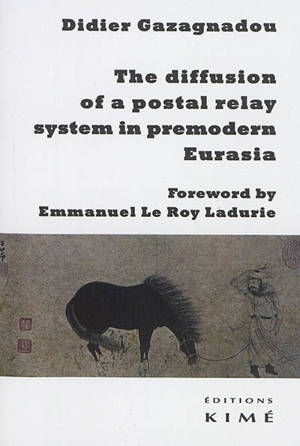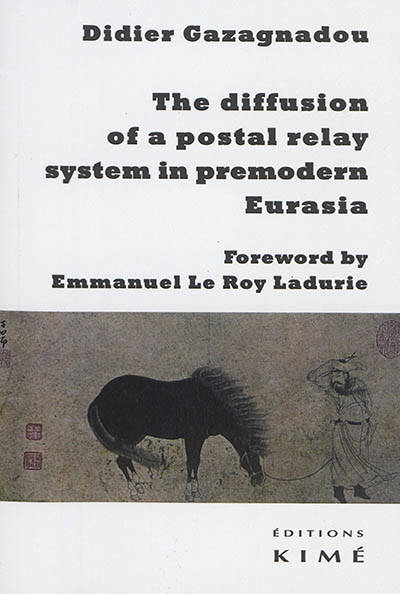
- Retrait gratuit dans votre magasin Club
- 7.000.000 titres dans notre catalogue
- Payer en toute sécurité
- Toujours un magasin près de chez vous
- Retrait gratuit dans votre magasin Club
- 7.000.0000 titres dans notre catalogue
- Payer en toute sécurité
- Toujours un magasin près de chez vous
The diffusion of a postal relay system in premodern Eurasia
Didier GazagnadouDescription
The diffusion of a postal relay system in premodern Eurasia
Information, the control of information and its speed of circulation have always been central preoccupations for States. In the 13th century, the Mongols conquered China, borrowed the imperial postal relay system and diffused it throughout all the conquered territories : Central Asia, Russia, Iran, Iraq. This postal service enabled them to transport all sorts of strategic information rapidly. When they invaded Syria and Palestine, they installed a postal relay network there. In September 1260, the Mongol armies were beaten in Palestine and Syria by the Mamlûk Sultanate troops, who in turn, borrowed the Mongol postal relay system and installed it throughout the Sultanate. Then, towards the end of the 14th century, the Duchy of Milan created the first European postal relay, which appeared to be modelled on the Mongol or Mamlûk postal systems. However, in Europe, the postal service underwent a transformation that had singular political and cultural consequences : the State made the postal service available to individuals, in exchange for payment. From then on, the postal service transported private correspondence where individual worries, emotions and projects were formulated. In this way, the postal institution contributed to a certain degree and in its own way, to the construction of the modern individual. This volume examines the phenomenon of diffusion itself as well as questions pertaining to information and its links with the State and the individual in different Eurasian cultures.
Spécifications
Parties prenantes
- Auteur(s) :
- Traducteur(s):
- Editeur:
Contenu
- Nombre de pages :
- 187
- Langue:
- Anglais
Caractéristiques
- EAN:
- 9782841747771
- Date de parution :
- 16-01-17
- Format:
- Livre broché
- Dimensions :
- 150 mm x 210 mm
- Poids :
- 250 g

Les avis
Nous publions uniquement les avis qui respectent les conditions requises. Consultez nos conditions pour les avis.






